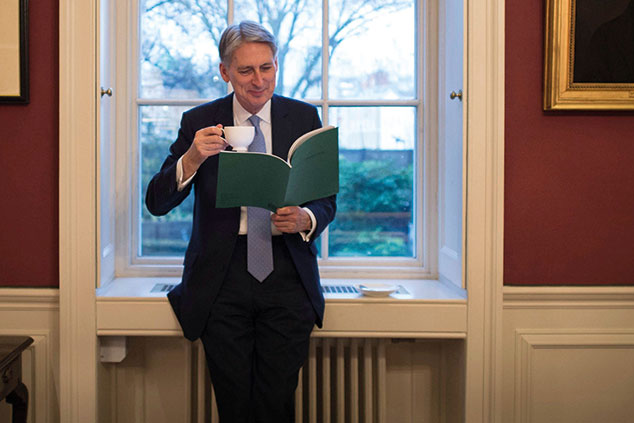
A “bumper tax haul for January” gave Philip Hammond the “biggest surplus ever recorded”, handing him a “boost” prior to his spring statement on 13 March, says Tim Wallace in The Daily Telegraph. The chancellor was £14.9bn in the black for the month, “smashing” the £10bn predicted by economists as record employment rates brought in extra revenue. Public borrowing for the financial year stands at £21.2bn, a fall of £18.5bn on the same period of 2018 to the “lowest level in 17 years”. Unfortunately, this isn’t the whole picture, says Chris Giles in the Financial Times. “Most data looks worse.”
Economic growth is noticeably weak, business investment has “fallen every quarter for the past year and economic sentiment is dropping rapidly”. What is going on? Behind the “contradictory headlines”, there is a logic: revenues are “stronger than expected”, but still not strong, historically. Record employment is offset by weak productivity, which is dampening overall economic performance; and because markets are increasingly betting on a “messier Brexit outcome”, they expect lower interest rates and this lowers the forecast for debt interest, flattering the public finances temporarily by lowering government borrowing figures.
A multibillion-pound windfall
Still, Hammond now has “more leeway”, say George Parker and Chris Giles in the same paper, and this week he promised a multibillion-pound windfall for the public finances, provided MPs finally back the government’s Brexit deal. The “crucial” Commons vote on a revised Brexit deal will be held on 12 March, at the latest.
If the deal is rejected, MPs will vote on 13 March, immediately after Hammond’s statement, on whether to reject a no-deal exit. A further vote on delaying Brexit would take place the next day. If MPs vote to allow a no-deal Brexit, the windfall will not be forthcoming.
May’s other attempt to get her Brexit deal passed is the launch of a Stronger Towns Fund, through which £1.6bn will be disbursed to less well-off towns in England after Brexit, says Brendan O’Neill in The Spectator. More than half the money, over a period of seven years, will go to the Midlands and the north of England, which, “funnily enough”, are the most “Brexity” regions.
Although this cash isn’t contingent on MPs backing May’s deal, if she is “dangling” it as a bribe to get Labour MPs in these parts of the country to back her deal (which shadow chancellor John McDonnell and others say she is), “it stinks”.
Moreover, this attempt to placate voters with a “few hundred quid” shows that “the political class still don’t get it”. The vote for Brexit wasn’t about “narrow self-interest”, it was based on principle and the wish for issues of law, trade and border control to be overseen “domestically” and “democratically”. The sums are pathetic and often dwarfed by funding cuts, adds the Daily Mirror. And to put the figure in perspective, the Coalition’s 2013 Regional Growth Fund was worth £3.2bn.
Nor is there any comparison between this pot and the “vastly larger sums” devoted to London and the southeast, says Simon Jenkins in The Guardian. “Fat-cat consultancies” are reportedly being paid more than £1.6bn “to prepare for no-deal Brexit”. These announcements could “make things more difficult”, says James Blitz in the FT. None of the efforts looks “decisive enough” to shift enough Tory and Labour MPs to back May’s deal. In the meantime, it looks increasingly unlikely that attorney general Geoffrey Cox will secure changes to the Irish backstop – the one thing that guarantees winning next week’s vote. It is “going to be very tight”.